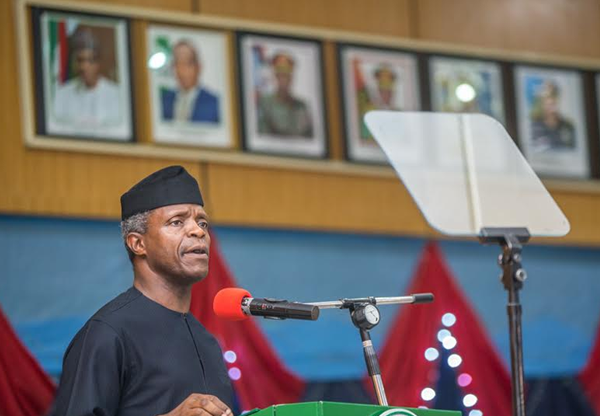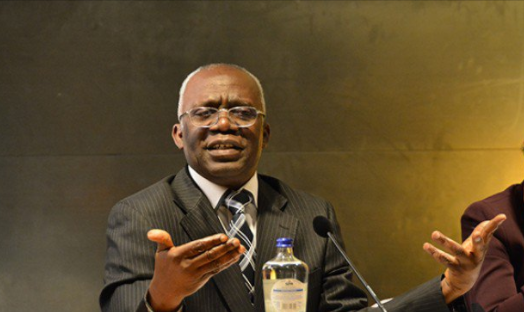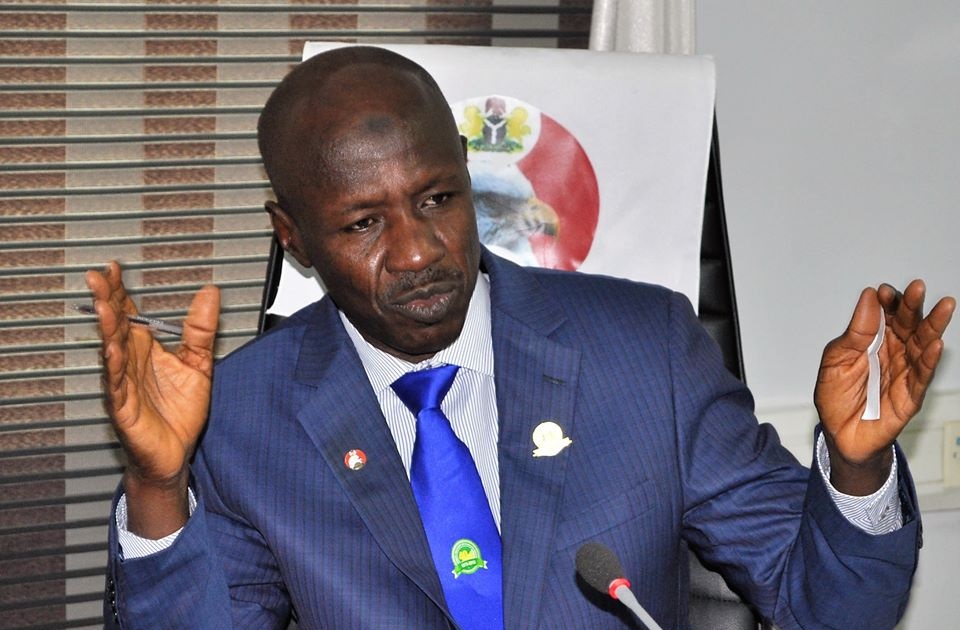Osinbajo at the graduation of Armed Forces Command & Staff College
Vice-President Yemi Osinbajo says the loss to tax evasion in developing countries, especially in Africa, is three times higher than the money the continent receives in foreign aid every year.
Speaking in Abuja at the ongoing African Tax Administrators Forum (ATAF) conference on tax in Africa, Osinbajo cited the Thambo Mbeki report on illicit financial flows which shows great tax losses to African economies.
The report, according to him, fingers multinationals in practices that lead to tax evasion and tax loss for such countries.
He also identified domestic resource mobilisation as the greatest challenge in dealing with tax matters in Africa.
Advertisement
The vice-president said the challenge usually comes in the form of existing tax gap, or the difference between “what we collect and what we could collect”.
“Significantly also, by the use of aggressive and often suspicious tax planning and transfer mispricing multinationals minimise their tax payments or put more graphically dodge taxes,” he said.
“The Thambo Mbeki report on illicit financial flows discloses shocking details of tax losses to African economies by these practices of multinationals and their local collaborators.
Advertisement
“Paradoxically the report shows that these practices lead to an estimated revenue loss for developing countries that is three times greater than the amount they receive in foreign aid each year.
“However, the trend of the international debate on global tax issues is favourable to African economies and most African tax administrators must be following them closely.
“There are two main agenda; the first is increasing transparency and information exchange while the second is base erosion and profit-shifting (BEPS).”
He said the desire to take advantage of the initiatives had informed Nigeria’s launching of the Voluntary Assets & Income Declaration (VAID) scheme.
Advertisement
“Although the scheme targets local tax evasion, we are also interested in a large number of Nigerians who own property abroad and have not been paying taxes on incomes from these assets,” Osinbajo said.
“I think it is important to emphasize that almost across Africa, tax administrators are actively engaged in extensive reforms and battling the resource difficulties that hamper those reforms.
“The issues of cost of collection and the appropriate technologies that could bring down these costs, developing relevant skills and management needed to effectively create and run efficient and transparent tax administrations, issues around institutional structure, the wisdom of ensuring autonomy of institutions of tax administration have stretched the creativity and resourcefulness of tax administrators across the continent.”
Advertisement
Add a comment







